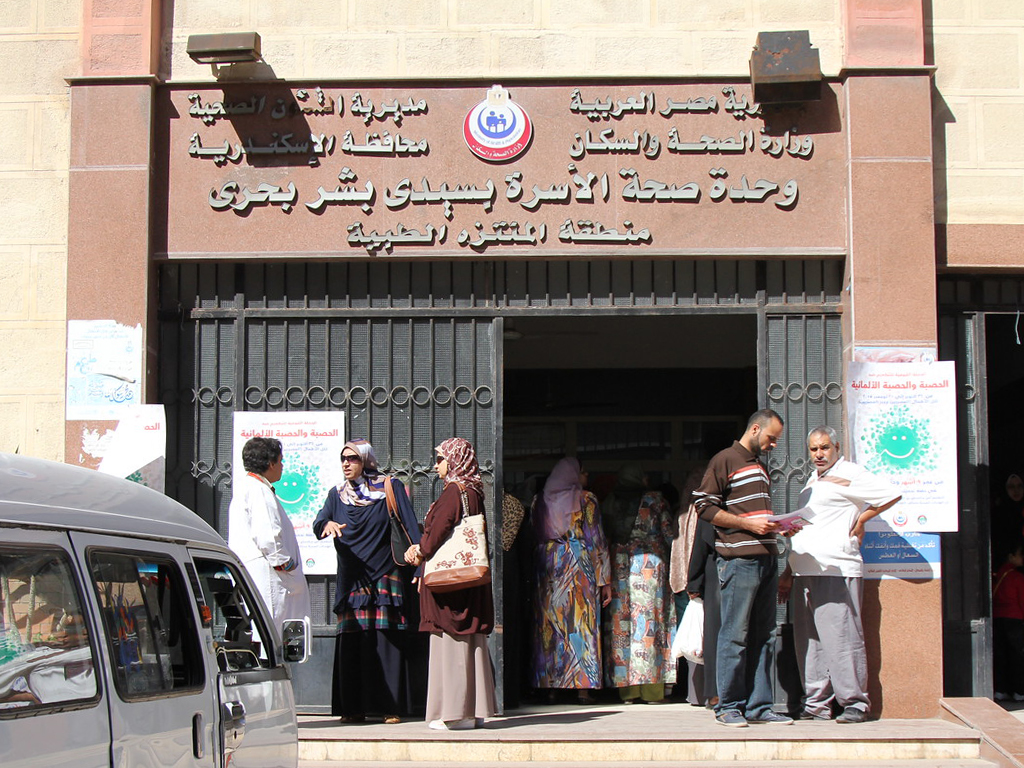July 28 of each year marks World Hepatitis Day. This year is different for refugees and asylum-seekers in Egypt who are now one step closer to living a life free of Hepatitis.

More than 30,000 foreigners, including refugees and asylum-seekers have been screened as part of the campaign to eliminate Virus C in Egypt.
Refugees travel more than two million kilometers every year to reach safety, but Khaled’s journey is bumpier than most refugees as a patient of Hepatitis C.
Fifty-four-year old Khaled was enforced to leave Sudan after he felt unsafe in his home country. He fled to Egypt in 2009 with a leg disability, four children, and carrying thoughts and memories hunting him daily in a world stacked with difficulties.
When he arrived in Egypt, his only hope was to seek international protection and ensure a decent life for his family. But on a dark gloomy night, one year ago, Khaled’s difficult life reached its apex after he received news that he was infected with Hepatitis C.
On the 24th of every month, Khaled has to get up in the early morning to have breakfast with his family at their humble dinner table in a rented flat in one of Cairo’s busy neighborhoods, before he heads to UNHCR partner, Save the Children (SCI), in Maadi to get his lab referral and conduct the medical tests requested by his doctors.
“It is very hard to save money for treatment and to follow up on my health condition while being jobless and raising four kids,” Khaled said. “All the cash assistance we get from UNHCR and its partners is spent on our daily needs and on the children’s education,” he added.
As of June 2019, UNHCR Egypt registered more than 249,000 refugees and asylum seekers, of whom more than 43,000 are Sudanese, comprising the second highest population of refugees living in Egypt.
Searching for an affordable cure and standing in queues that seem to take forever have become a routine in Khaled’s life since he was diagnosed with Hepatitis C.
On March 23, Khaled received a phone call from SCI to inform him that he would be assessed by the Ministry of Health (MoH) and the World Health Organization (WHO) to be eligible for treatment, as part of President Abd Al-Fattah Al-Sisi’s initiative to include non-Egyptians in ‘100 Million Seha’ campaign that provides free treatment to individuals in Egypt suffering from Hepatitis C.
The ‘100 Million Seha’ campaign kicked off in October 2018, aiming at eliminating Hepatitis C in Egypt by 2023 and by March 2019, the campaign was extended to all foreigners living in Egypt including refugees and asylum-seekers.
“The Ministry of Health and Population has for many years been one of UNHCR’s closest partners. We value all the efforts that have been deployed by the Government of Egypt to include refugees and asylum-seekers into ‘100 Million Seha’ on par with Egyptian nationals,” said Mr. Karim Atassi, UNHCR Representative in Egypt.
“Receiving treatment for the Virus from the Egyptian Ministry of Health and Population at no cost has removed such a heavy burden off my shoulders. Now, I can worry less about my health and focus on providing a better future for my children,” says Khaled.
On March 24, Khaled brought all his medical reports to the Liver and Tropical Diseases Institute at El Kasr El Eini Hospital, to be the first refugee to receive free Hepatitis C treatment from the MoHP with the support of the WHO and UNHCR.
UNHCR, through its partners, and WHO are following up on the conditions of Khaled and other refugees receiving treatment by providing the necessary medical tests needed during and after they receive treatment.
In Egypt, refugees and asylum-seekers of all nationalities have been granted access to public primary, secondary and emergency health care in Egypt on equal footing with Egyptian citizens since 2016. More recently, the Government extended its TB and HIV National programmes, aiming at eradicating communicable diseases in Egypt, to include refugees and asylum-seekers.
*Names and identifying details have been changed to maintain confidentiality*
Share on Facebook Share on Twitter